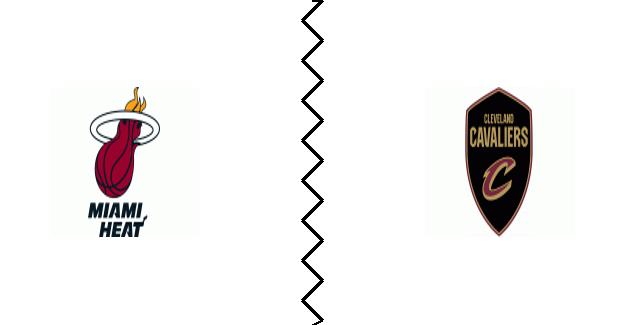2025-04-23 Miami at Cleveland Matchup Preview

Cleveland's dominant regular season and playoff performance sets the stage for a compelling clash against a Miami team seeking to disrupt their momentum.


Offensive Outlook
Miami's offensive strategy during the regular season shows a willingness to share the ball, demonstrated by their assist percentage of 65.3, and they attempt to limit mistakes, illustrated by a turnover percentage of 12.4. Their effective field goal percentage stands at 0.576, suggesting a fairly efficient offensive attack, also supported by a three-point percentage of 36.7% and a free throw percentage of 79.1%. However, their playoff offense showcases a drop in assist percentage to 59.0 and an increase in turnover percentage to 14.1, though their effective field goal percentage does climb to 0.586, suggesting a higher level of efficiency in their scoring opportunities. Their playoff three-point percentage jumps to 41.9%, but their free-throw percentage dips to 75.0%. Cleveland's defense surrenders an assist percentage of 62.1 and forces a turnover percentage of 12.4 during the regular season, so Miami's regular season offense could pose a challenge, but Cleveland's playoff defense allows an assist percentage of 59.0 and yields a turnover percentage of 15.0, indicating that Miami's playoff offense will likely struggle against them.
Defensive Strategies
Miami's defensive approach during the regular season revolves around securing defensive rebounds at a rate of 75.9% and limiting opponents' assist percentage to 64.3, coupled with forcing a turnover percentage of 12.5. Opponents shot 36.0% from three-point range and 77.6% from the free-throw line against Miami. During the playoffs, Miami shows a drop in defensive rebound percentage to 65.0 and allows a very low assist percentage of 46.7. Miami also forces a low turnover percentage of 6.9 during the playoffs. Opponents have shot 41.9% from three-point range and 81.3% from the free-throw line during the playoffs. Cleveland's regular season offense assists on 63.1% of their made field goals and turns the ball over on 11.6% of possessions. Cleveland also secures offensive rebounds at a rate of 25.9%. Cleveland's offensive profile suggests that Miami may struggle in defending them, especially due to Miami's inability to secure defensive rebounds at a high rate.
Cleveland's Strengths
Cleveland's regular season showcases a team that thrives on the offensive glass, securing offensive rebounds at a rate of 25.9%, while limiting turnovers, evidenced by a turnover percentage of just 11.6. Their playoff offensive rebounding percentage shoots up to 35.0% and their turnover percentage dips to 7.8%, demonstrating their ability to take care of the ball. Cleveland also shoots a very high 81.3% from the free throw line during the playoffs. Their defensive rebounding rate is also at 74.8%. Cleveland demonstrates a capability to limit opponent’s assist opportunities, demonstrated by an opponent's assist percentage of 62.1%, which will pose a problem for Miami.
Miami's Keys to Success
For Miami to compete, they must capitalize on their shooting efficiency and find ways to generate quality looks against Cleveland's defense. Miami's regular season three-point percentage of 36.7% shows a potential for perimeter scoring, and they must maintain or elevate this efficiency. They need to exploit any defensive lapses by Cleveland and convert those opportunities into points. Securing defensive rebounds will be paramount to preventing second-chance points for Cleveland, but this will be a challenge considering their defensive rebounding percentage fell to 65.0% in the playoffs. Controlling the tempo of the game and limiting transition opportunities for Cleveland will be crucial.
Pace and Momentum
Cleveland played at a faster pace during the regular season, demonstrated by a pace of 99.8 possessions per game, compared to Miami's slower pace of 96.2. This indicates Cleveland's preference for a more up-tempo style of play, which could be advantageous if they can control the flow of the game. If Cleveland is able to dictate the pace, it could put pressure on Miami to keep up, potentially leading to turnovers and defensive breakdowns. Miami must find ways to disrupt Cleveland's rhythm and impose their own pace to stay competitive. Expect Cleveland to control the game and Miami to struggle to keep up in this critical contest.
Prediction
Considering Cleveland's overall performance during both the regular season and the playoffs, particularly their offensive rebounding and turnover avoidance, coupled with their defensive capabilities, they appear to be the favorites in this matchup. Miami will need to execute flawlessly and exploit any vulnerabilities in Cleveland's defense to have a chance at victory. However, Cleveland's consistency and superior play on both ends of the court make them a tough opponent to overcome.
Predicted Score: Miami 101, Cleveland 111